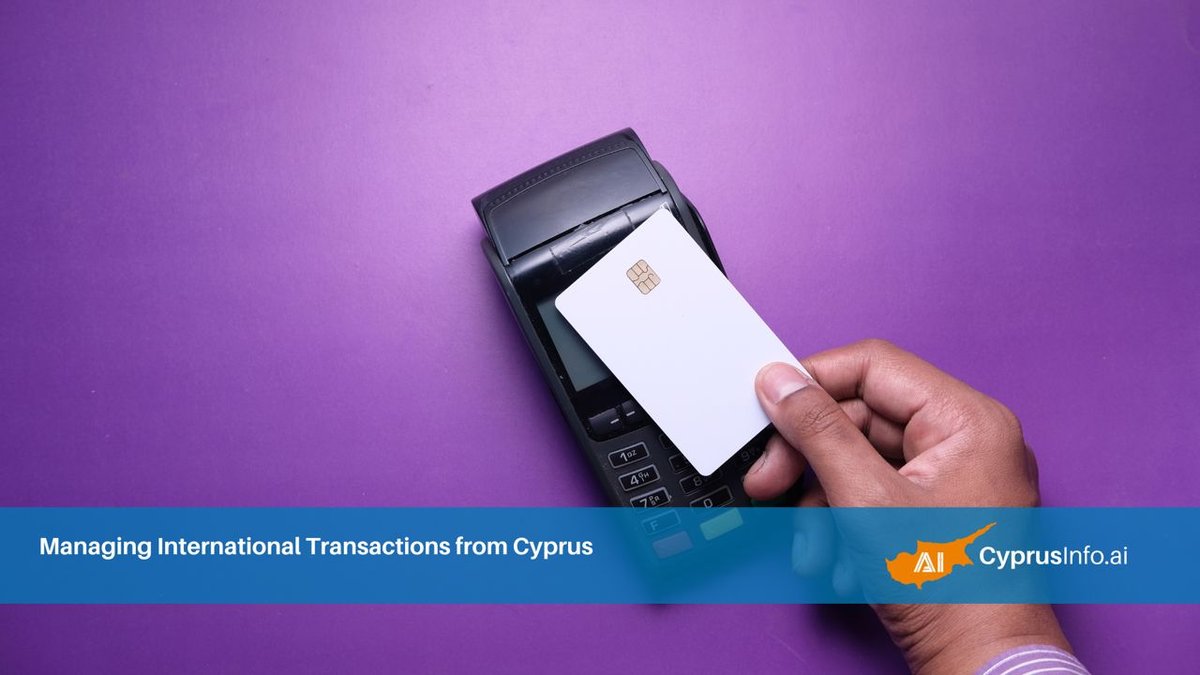Managing International Transactions from Cyprus
For businesses with a global reach, managing international transactions efficiently and securely is a top priority. Cyprus's banking system, with its modern infrastructure and its status as a full member of the European Union, is well-equipped to handle the needs of international firms. From multi-currency accounts and swift wire transfers to a variety of online banking services, Cypriot banks provide the tools necessary for seamless cross-border financial operations. This guide will provide a detailed look at how to manage international transactions from Cyprus, covering the key banking services, currency exchange, and essential considerations for a smooth and efficient process in 2025. For a broader overview of the local business environment, you can read our guide on The AI-Powered Marketer: Business Adviser. You can also explore our guide on Cyprus Company Registration: A Step-by-Step Guide 2025.
1. The Cyprus Banking System: A Hub for International Finance
The Cyprus banking system is a crucial part of the country's appeal as an international business hub. The system is supervised and regulated by the Central Bank of Cyprus, which operates under the framework of the European Central Bank. The system is known for its stability, transparency, and its compliance with all EU and international regulations. The major banks in Cyprus, such as Bank of Cyprus, Hellenic Bank, and Eurobank Cyprus, offer a wide range of services that are tailored to the specific needs of international clients. These services are a key factor in making Cyprus a premier destination for international business. You can find more information about this in our directory of finance, banking, and investment.
2. Key Tools for Managing International Transactions
To manage international transactions efficiently, you need to leverage the right tools and services. The major Cypriot banks offer a full suite of services that are designed for seamless cross-border financial operations.
Multi-Currency Accounts
A multi-currency account is an essential tool for any business that operates internationally. It allows you to hold and manage funds in a number of currencies, such as USD, GBP, and EUR, which is a great way to avoid the fees and charges of a currency conversion. The accounts also come with a number of online banking services and a number of international transfer services. Our guide on Cyprus Company Formation Requirements for Foreigners provides more detail.
SEPA and SWIFT Payments
For international transfers, you will need to use either SEPA or SWIFT payments. SEPA (Single Euro Payments Area) payments are for transfers within the EU and are fast, secure, and often free. SWIFT payments are for transfers outside the EU and are a bit more complex, with higher fees and a longer processing time. It is important to have a clear understanding of both payment systems and to choose the right one for your specific needs. For more on the local life, you can explore our guide on Cyprus for Expats.
Online Banking Platforms
The major banks in Cyprus offer a number of modern and user-friendly online banking platforms that are designed for businesses. The platforms allow you to manage your accounts, send and receive payments, and track your transactions from anywhere in the world. The platforms also come with a number of security features and a number of other services that are designed to make your life easier. For more on the local business environment, you can check out our guide on Understanding Tonnage Tax for Shipping Firms in Cyprus. You can also explore our business directory of all businesses.
3. Key Considerations for a Smooth Process
To ensure a smooth and efficient process, you should consider a few key factors before you make an international transaction. These considerations will help you avoid any delays, fees, or legal issues.
Currency Exchange and Fees
The currency exchange rate and the fees of a bank are a major consideration. You should compare the exchange rates and the fees of different banks before you make a transaction. You should also consider the fees for a number of services, such as a multi-currency account, a trade finance option, and a number of other services. For more information, you can find a suitable accounting or auditing firm in our directory. You can also get more help on Costs to Set Up a Limited Company in Cyprus in our guide.
Compliance and Regulation
International transactions are subject to a number of regulations and compliance requirements. You should ensure that your transactions are in compliance with all the local and international laws, such as anti-money laundering (AML) and know-your-customer (KYC) regulations. The bank will conduct a due diligence check on all your transactions, and it is important to have a clear understanding of the rules. Our guide on Avoiding Double Taxation with a Cyprus Holding Company provides more detail.



